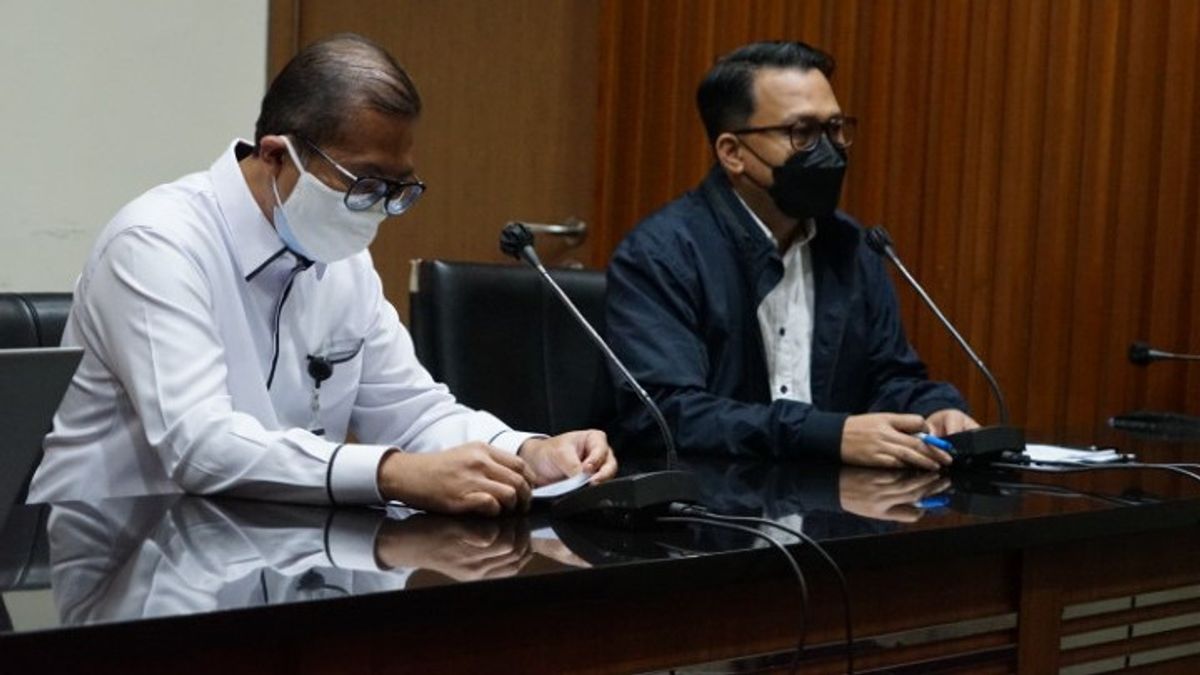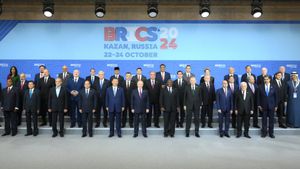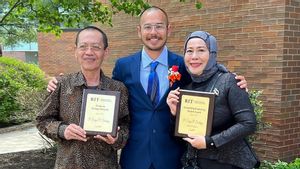JAKARTA - The new regulation issued by the leadership of the Corruption Eradication Commission (KPK) that regulates official travel for employees is now paid for by the polemic state administration committee. The reason is that this rule is considered to legalize gratification by a number of predecessors, Firli Bahuri et al.
Former KPK Chairman Abraham Samad said the new regulation issued by Firli Bahuri et al could undermine the prestige of the anti-corruption commission and be considered legalizing gratuities. In fact, so far the KPK has been very strong in maintaining the integrity of its employees.
"This Perkom (Commission Regulation) has completely legalized gratification and this will undermine the dignity and prestige of the KPK, which has been very strong in maintaining the integrity of KPK people," Abraham told reporters, Monday, August 9.
The rules regarding the financing of official travel are regulated in KPK Leadership Regulation (Perkom) 6 of 2021 concerning Official Travel within the KPK. This institution argues that the changes were made to adjust the status of KPK employees who are now State Civil Apparatuses (ASN).
Abraham said that if this Perkom was implemented, then the KPK leadership would be trying to destroy and kill the integrity of its employees.
"So what destroys and kills the KPK is actually the KPK leadership itself with this Perkom policy," he said.
Former KPK leader Bambang Widjojanto also criticized this policy by saying that this new regulation has ignored the values and principles in the code of ethics and has a corrupting nuance.
In addition, this policy is also considered a potential fraud because Article 2A of Perkom Number 6 of 2021 is only generic. So that the formulation can open up opportunities for corrupt behavior because it can lead to new modes.
"It is not explained at all, what are the cost components of official travel? The KPK Perpim also does not regulate in detail, who can invite parties, what is the basis for the interest of the invitation and how to filter so as not to cause a conflict of interest," explained BW.
Instead of making controversial rules, he reminded Firli Bahuri et al. to have awareness to prioritize the rules that will be formulated. BW asked the KPK leadership to prioritize making rules relating to attitudes and behavior in relationships, communications, or meetings with other parties that have a strong potential to cause a conflict of interest.
"It is much better if the KPK leadership implements programs that are planned by itself and/or gives priority to programs aimed at the interests and benefits of the KPK rather than attending invitations," he stressed.
In an effort to straighten out the intent of this regulation, the KPK held a press conference which was attended by the Secretary General of the KPK, Cahya H Harefa.
He said that the financing of official travel according to the latest regulations is not a form of bribery and gratification. Moreover, in its implementation there are nominal standards that must be followed so that it cannot be carried out arbitrarily.
"KPK reminds again that official travel costs are operational costs to carry out an activity that is regulated and has a nominal standard, not gratification or bribery," Cahya said in a press conference broadcast on the KPK RI YouTube.
He explained that the adjustment to this rule was the aftermath of the transfer of the KPK's employee status to the State Civil Apparatus (ASN) since June 1. In addition, this rule is also adjusted to the Regulation of the Minister of Finance Number 113/PMK/05/2012 concerning Domestic Official Travel for State Officials, Civil Servants, and Non-Permanent Employees.
Thus, the cost of official travel is only borne by the committee if the employee will attend meetings, seminars, and similar activities.
"However, in the event that the organizing committee does not cover the costs of their official travel, the costs will be borne by the KPK budget by taking into account the absence of double financing and prioritizing budget efficiency," explained Cahya.
Furthermore, he explained that the KPK could also bear the travel costs of related parties in joint activities. However, all of these official travel financing activities only apply between ministries.
"This regulation does not apply to cooperation with the private sector," said Cahya
He also emphasized that employees are still not allowed to receive honorariums when they are resource persons while carrying out KPK duties.
The Anti-Corruption Commission ensures that gaps in corruption and conflicts of interest have been anticipated in this financing process. Because in its implementation, the employees will be closely monitored by the Supervisory Board and the KPK Inspectorate.
Not only that, travel financing in case handling will also be carried out by the KPK. This decision was taken solely to avoid anticipating a conflict of interest.
"Financing the process of handling a case to anticipate conflicts of interest, the KPK has decided that all these activities will continue to use the KPK budget," he concluded.
The English, Chinese, Japanese, Arabic, and French versions are automatically generated by the AI. So there may still be inaccuracies in translating, please always see Indonesian as our main language. (system supported by DigitalSiber.id)













